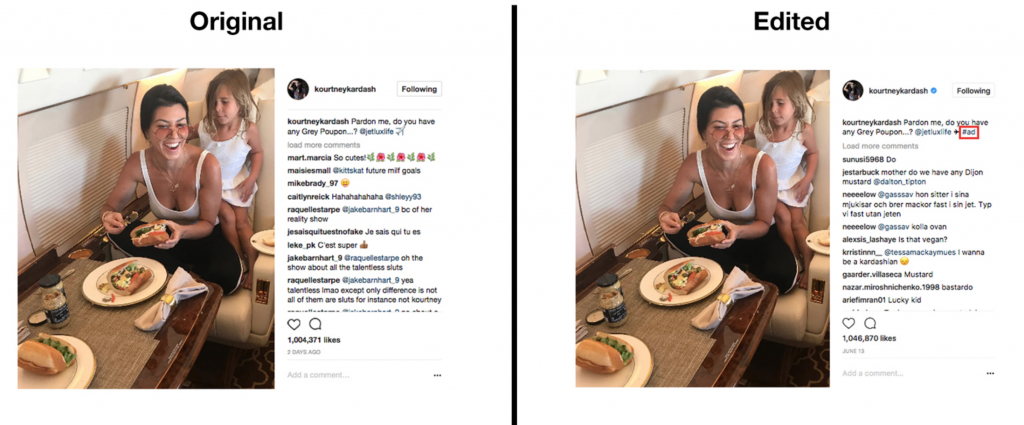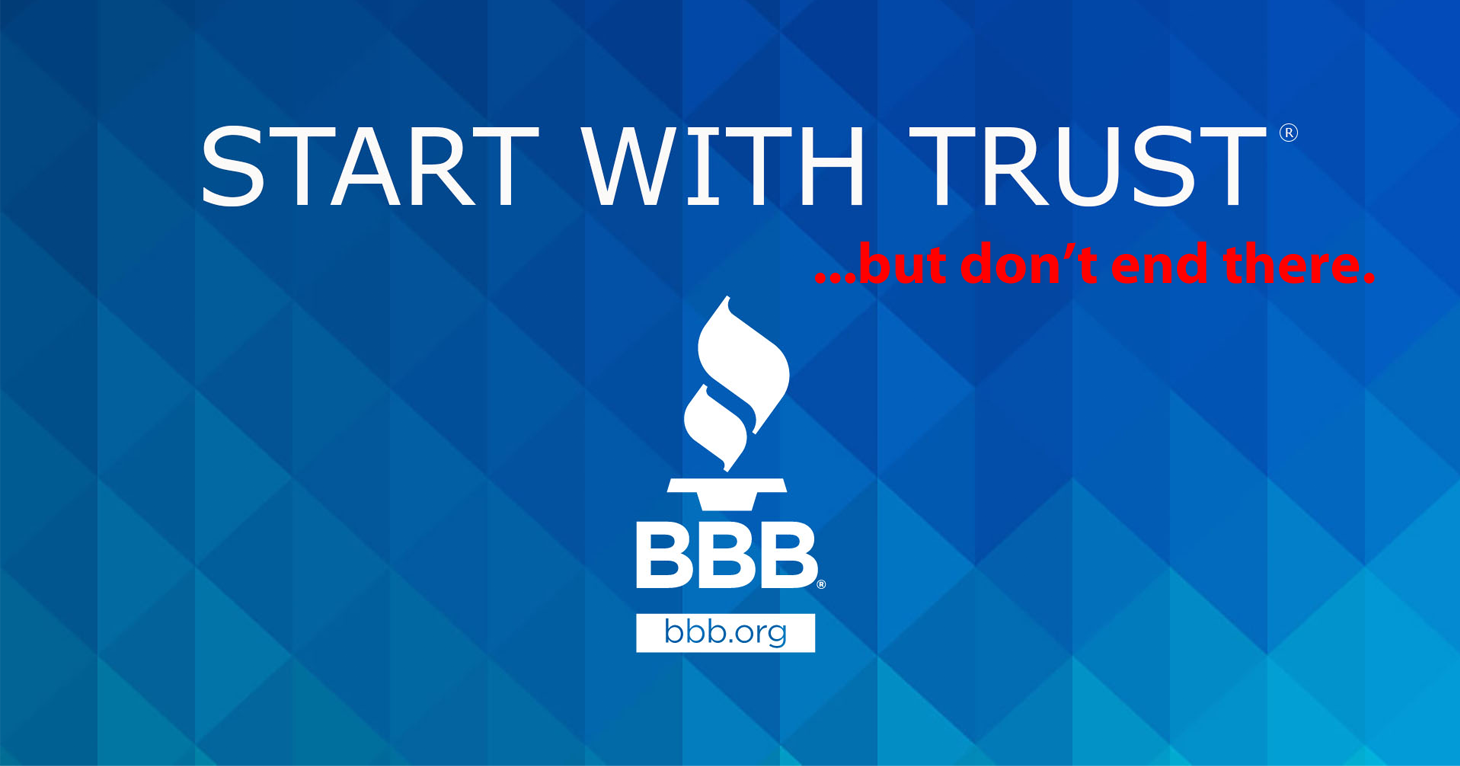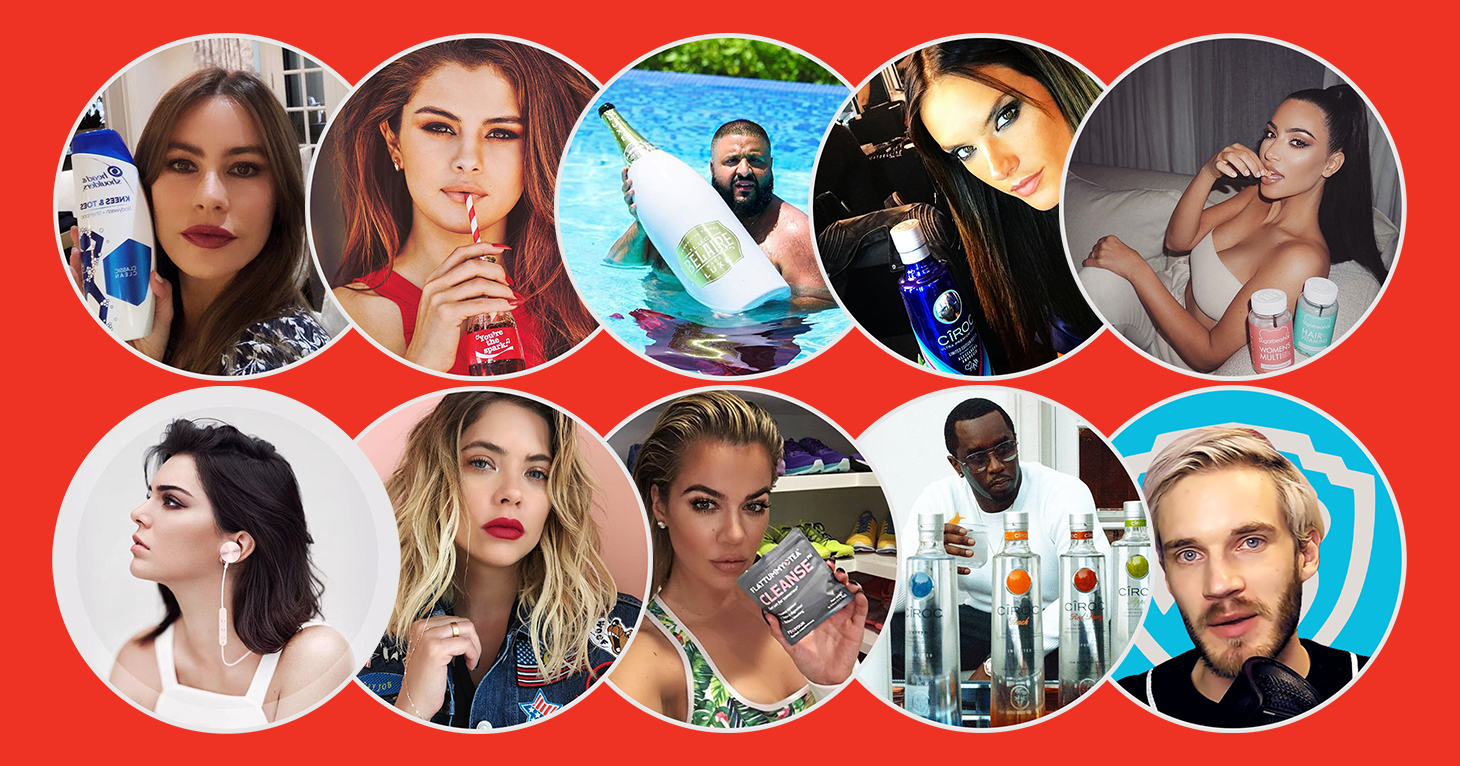
Coronavirus Spawns Class-Action Lawsuits as Consumers Seek Refunds
The pandemic has also triggered lawsuits over privacy issues with some video conferencing apps, and more.
From ambiguous hashtags to delaying disclosure, the family continues to spurn federal endorsement guidelines.
Like oh-so-many Americans, TINA.org has been keeping up with the Kardashians. Unfortunately for consumers, not much has changed since we last checked in.
A little over a year ago, TINA.org filed a complaint with the FTC against the Kardashian/Jenner sisters for publishing social media posts that failed to clearly and conspicuously disclose material connections to brands or the fact that the posts were paid ads, as required by federal law. Now TINA.org has compiled a new sampling of more than 200 posts by Kim, Kourtney, and Khloe Kardashian and half-sisters Kendall and Kylie Jenner that are similarly deceptive.
Last year’s complaint did prompt the women to fix about 45 percent of the posts in TINA.org’s initial sampling by either deleting the post or modifying it to include #ad at the beginning of the caption. But another 40 percent of the more than 100 Instagram posts that TINA.org originally collected remain unchanged. The remaining 15 percent now contain insufficient disclosures.
Brands are legally obligated to ensure so-called “influencers” adequately disclose their material connection — which can range from compensation to free products to a business or family relationship — in posts. And several of the brands in TINA.org’s latest sampling, promoted on Instagram, Facebook and Snapchat, are repeat offenders from last year, including Puma, Manuka Doctor, Jet Lux, Fit Tea and Sugar Bear Hair. Among the new brands are Adidas, Diff Eyewear, Alexander Wang and Lyft.
TINA.org has alerted the Kardashian/Jenner family and their associated brands, as well as the FTC, to this latest batch of deceptive social media posts.
“The Kardashian/Jenner sisters are masterful marketers who are making millions of dollars from companies willing to turn a blind eye to the women’s misleading and deceptive social media marketing practices,” said TINA.org’s Executive Director Bonnie Patten. “It’s time the Kardashians were held accountable for their misdeeds.”
A booming industry and a government crackdown
In the age of ad blocking, brands are increasingly turning to social media personalities to promote their products, spending upwards of $250 million a month on influencer marketing campaigns on Instagram alone, according to the social-media analytics firm Captiv8. Their goal? To tap into the mega followings of influencers like the Kardashian/Jenner women, whose hundreds of millions of social media followers earn each of them tens to hundreds of thousands of dollars per sponsored post.
RELATED: Kourtney Kardashian’s ‘Microneedling’ Session with Dr. Jason Diamond
But the industry has come under scrutiny of late. TINA.org’s latest findings come just a few months after the FTC made good on a promise to crack down on influencers who skirt the law. In April, the FTC sent letters to 46 social media stars reminding them of the legal requirement to disclose their relationship with brands when promoting products (and/or services). And earlier this month, the FTC followed up by sending warning letters to 21 of the 46 influencers. The letters indicate that these influencers have until the end of September to tell the agency whether they have a material connection to the brand or brands identified in their posts, and if they do, report what steps they have taken to clearly and conspicuously disclose that connection. This marked a change in approach for the FTC, which has historically placed the burden of disclosure solely on brands. (See FTC Social Media Actions).
To date, it appears that the Kardashian/Jenner sisters have escaped this FTC crackdown largely unscathed. Only one Kourtney Instagram post — a photo of herself and Khloe snacking on Popeyes fried chicken on a private jet (where else?) — was cited in a letter to the fried chicken chain’s CEO as a possible paid endorsement that requires disclosure.
The FTC wrote:
If your company has a business relationship with Ms. Kardashian, that relationship should be clearly and conspicuously disclosed in her endorsements. To be both “clear” and “conspicuous,” the disclosure should use unambiguous language and stand out.
The Popeyes post in its current form is the same as when the FTC wrote the company, which is to say, if Kourtney has a material connection to Popeyes, she’s not revealing it.
Half-hearted attempts at disclosure
Even when Kim and company do include some sort of disclosure language, TINA.org has found that the jargon often falls short of meeting the FTC’s standard on clear, unambiguous language.
TINA.org has compiled dozens of instances in which the women make half-hearted attempts at disclosure through the use of cryptic hashtags such as #sp (meaning sponsored as opposed to Spanish), #PWCollab (apparently short for Protein World collaboration), and #KJ4EL (roughly translates to Kendall Jenner for Estee Lauder).
The Kardashian/Jenner sisters have been on Instagram long enough to know that what their legions of followers crave is authenticity. Nothing says I-am-trying-to-sell-you-something like #ad at the beginning of a caption, even if that’s what FTC endorsement guidelines (updated earlier this month) say would likely be effective in communicating a material connection such as a paid endorsement.
And, as the FTC made clear in its revised endorsement guidelines and in an infographic released in conjunction with the agency’s first-ever complaint against two influencers in the online gaming industry, ambiguous disclosure language such as #sp, #PWCollab and #KJ4EL doesn’t pass muster.
Delayed disclosure
In other cases, the Kardashian/Jenners belatedly disclose social media posts as sponsored, waiting hours or even days to reveal the true identity of the post.
Studies have shown that 90 percent of an Instagram post’s likes and comments occur within the first 10 hours of publication, which means that when the sisters use this delayed-disclosure tactic many of their followers have viewed the post prior to it being disclosed as an ad. For example, it took Kourtney at least two days to come clean about her sponsorship deal with the jet charter company Jet Lux in this Instagram post, after more than a million of her followers had already liked the post (click on image to enlarge).
 And little sister Kylie was at least one million likes in before she disclosed (at the end of her post) that her obsession with her new jeans was actually a paid endorsement.
And little sister Kylie was at least one million likes in before she disclosed (at the end of her post) that her obsession with her new jeans was actually a paid endorsement.
As Kourtney and Kylie’s posts clearly demonstrate even when the sisters do get around to adding a disclosure, there’s no telling where that disclosure will end up in their narrative. TINA.org has catalogued numerous examples of the Kardashian/Jenner women burying #ad in the middle or end of posts, or in places where a consumer must click “See More” in order to see the disclosure.
The FTC has shown itself willing to take action against such tucked-away disclosures. In July 2016, for example, the FTC went after Warner Bros. for instructing influencers in a YouTube marketing campaign for its “Middle Earth: Shadow of Mordor” video game to place sponsorship disclosures in description boxes under positive gameplay videos. The FTC said:
Because Warner Bros. also required other information to be placed in that box, the vast majority of sponsorship disclosures appeared “below the fold,” visible only if consumers clicked on the “Show More” button in the description box.
For the Kardashian/Jenner sisters, TINA.org found that these types of hidden disclosures were most prevalent on Facebook.
But TINA.org’s latest findings across the three social media platforms (Facebook, Instagram, Snapchat) show that the Kardashian/Jenner women are well aware of the need to reveal their relationships with brands, they just choose not to. For example, the same sponsored post for Jet Lux that appears on Kendall Jenner’s Instagram account with disclosure appears on her Facebook homepage without it.
The FTC recently stated that action against an individual endorser might be appropriate “if the endorser has continued to fail to make required disclosures despite warnings.” If the FTC wants to act on this statement, it can take its pick of any of the five Kardashian/Jenner sisters. Or better yet, go after them all.
Read more about TINA.org’s investigations into the famous family’s deceptive social media posts here.
The pandemic has also triggered lawsuits over privacy issues with some video conferencing apps, and more.
Researching a company shouldn’t be one-stop shopping.
A review of TINA.org’s work exposing deceptive marketing tactics by social media influencers.


